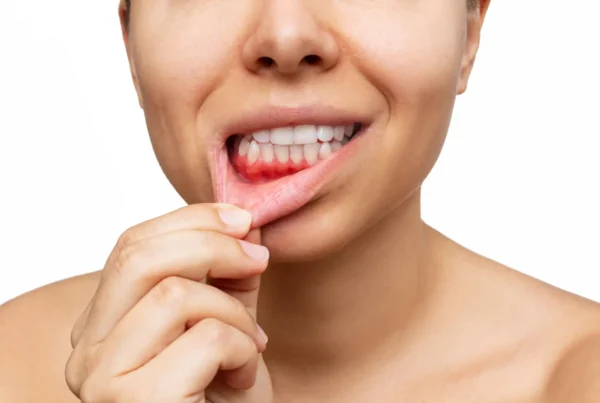- Turmeric – the golden root with many uses
- Can turmeric actually whiten teeth?
- Cleansing properties and stain reduction
- The yellow paradox – does turmeric stain or whiten?
- Advantages of using turmeric toothpaste
- Disadvantages of turmeric toothpaste
- DIY turmeric paste – does it work?
- When turmeric isn’t enough – consider professional whitening
Turmeric – the golden root with many uses
Turmeric, often referred to as the “golden spice,” has long been used in Ayurvedic and Chinese medicine for its numerous health benefits. Derived from the root of Curcuma longa, its key active compound, curcumin, is known for its anti-inflammatory, antibacterial, and antioxidant properties. In recent years, turmeric has also found its way into the world of oral hygiene, particularly as an ingredient in natural toothpastes.
But can turmeric really whiten teeth and reduce discoloration? And is brushing with turmeric safe for your enamel? Let’s explore the potential of turmeric toothpaste and separate fact from myth.
Can turmeric actually whiten teeth?
One of the most debated claims about turmeric is its alleged teeth-whitening ability. The idea is based on curcumin’s anti-inflammatory and antibacterial actions, which may help reduce surface stains and improve overall oral health. However, it’s important to distinguish between removing external discoloration and truly whitening tooth enamel. While turmeric may aid in cleaning the surface of teeth, its chemical whitening power remains limited.
Cleansing properties and stain reduction
Turmeric may assist in removing stains caused by coffee, tea, or red wine. Thanks to its mildly abrasive texture and anti-inflammatory qualities, it can support the natural cleaning process of the teeth. Still, it doesn’t have the ability to bleach enamel the way peroxide-based products do. As such, turmeric works better as a supportive ingredient than a standalone whitening solution.
The yellow paradox – does turmeric stain or whiten?
Despite its strong yellow pigment, regular use of turmeric in toothpaste formulations doesn’t necessarily lead to more staining. Advocates suggest that, when used in appropriate amounts and combined with balancing ingredients, turmeric may actually help improve tooth color. The key is choosing a properly formulated product and rinsing thoroughly after use.
Advantages of using turmeric toothpaste
Turmeric-based toothpaste offers several potential benefits, especially for those looking for natural alternatives in oral care. Its anti-inflammatory and antibacterial effects can help fight bacteria responsible for tooth decay and gum disease. With regular use, turmeric toothpaste may reduce gum inflammation, support oral immunity, and contribute to fresher breath.
Some users pair turmeric with coconut oil pulling, another natural technique known for reducing plaque buildup. While this method doesn’t remove hardened tartar, it may help prevent its formation when used consistently. Clean oral tissues are less likely to develop cavities or persistent bad breath.
Turmeric may also help soothe swollen or bleeding gums, which is especially beneficial for those with early signs of periodontal disease. Many turmeric toothpastes are fluoride-free, SLS-free, and free from synthetic dyes, making them an attractive choice for individuals with sensitive teeth or allergies to conventional ingredients.
Read more: Zinc in toothpaste
Disadvantages of turmeric toothpaste
Despite its natural appeal, turmeric toothpaste has its limitations. Its whitening effect is largely anecdotal and not supported by robust scientific evidence. While it may reduce surface stains, it doesn’t provide the same results as professional whitening or activated charcoal-based pastes.
Additionally, turmeric’s strong pigment may stain toothbrushes, sinks, or even the skin around the mouth if not used carefully. Brushing with turmeric-based products requires extra attention during rinsing and cleaning afterward.
Compared to conventional toothpastes, turmeric formulas may feel less intensive in terms of cleaning. Individuals with significant dental issues or advanced plaque buildup may require more targeted oral care products. Natural toothpaste often comes with a higher price point as well, due to the cost of organic ingredients and small-batch production, which may not suit all budgets.
DIY turmeric paste – does it work?
If you’re curious to try a homemade turmeric whitening paste, you can mix powdered turmeric with coconut oil and use it to brush your teeth gently for a few minutes. While this won’t chemically whiten your teeth, it may soothe sensitive areas and freshen your breath. Plus, it carries a pleasant natural aroma. Just remember that results may vary, and enamel brightening won’t be as significant as with dental treatments.
When turmeric isn’t enough – consider professional whitening
It’s essential to remember that turmeric is not a miracle solution. Its impact on tooth color depends on individual habits, stain types, and oral health. If you suffer from deep discoloration, it’s best to consult a dentist before switching to turmeric toothpaste.
For long-lasting results, professional whitening treatments offer the most noticeable change. Regular dental check-ups, avoiding strongly pigmented foods, and using clinically tested whitening products will help you maintain a bright, healthy smile. If you’re considering a turmeric-based toothpaste, read user reviews and choose a product suited to your needs.






